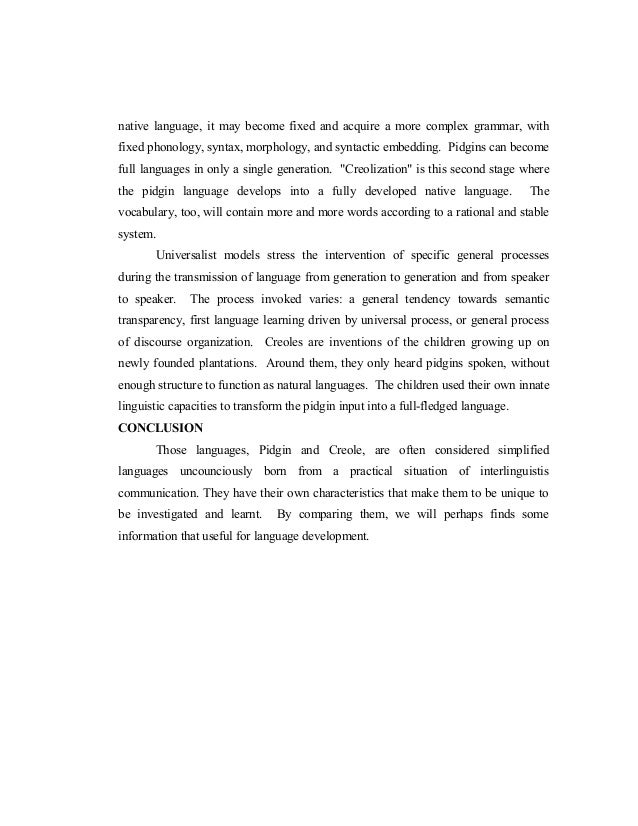

In general, given their extreme conditions of emergence, they lend support to the idea that language learning and transmission are remarkably resilient processes.Įmail from Damián Blasi puts it more bluntly: Our findings call into question the existence of a pidgin stage in creole development and of creole-specific innovations. While a creole profile can be detected statistically, this stems from an over-representation of Western European and West African languages in their context of emergence. Damián Blasi, Susanne Michaelis and Martin Haspelmath, " Grammars are robustly transmitted even during the emergence of creole languages", Nature Human Behaviour 2017:Į analyse 48 creole languages and 111 non-creole languages from all continents and conclude that the similarities (and differences) between creoles can be explained by genealogical and contact processes, as with non-creole languages, with the difference that creoles have more than one language in their ancestry.


 0 kommentar(er)
0 kommentar(er)
